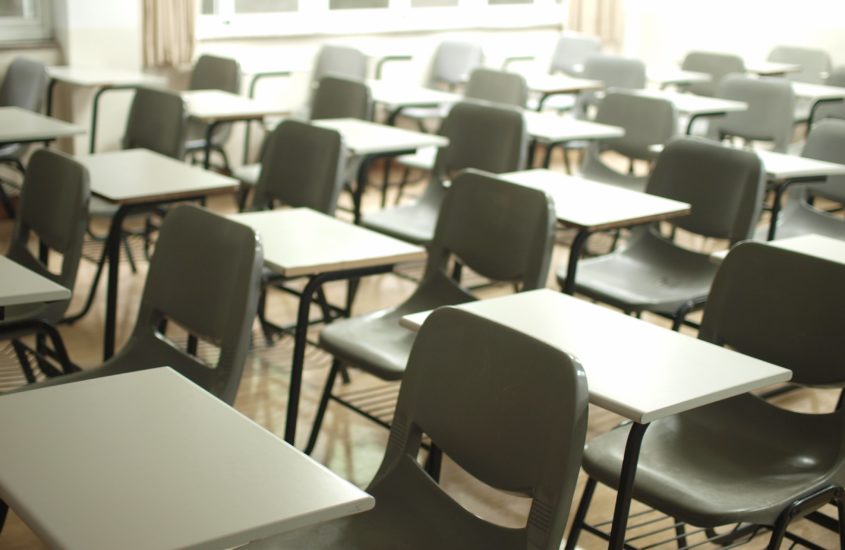School Boards: History, Failings, And How You Can Enact Change
AmericanMom Team | PC: Unsplash
PC: UnsplashA Very Brief History of the School Board
Did you know that your parents and/or grandparents attended school before there was a federal Department of Education? From the first colonies, the Federal government has almost always had some hand in education, establishing boards of education as early as 1647 in Massachusetts. By 1826, the very first official school board was created in the area, giving a select number of elected officials power over the public education offered to children. It wasn’t until 1979 that the Department of Education was formed, which means the power of education has historically been in the hands of local school boards and parents.
Though today’s school boards look a little different from their 1800s and turn of the century counterparts, the principle still stands and their purpose (at least on the face of it all) is still relatively the same: Focus on student achievement, allocate resources to needs, use data to plan and evaluate, engage the communities they serve.
Demonizing every school board is not our goal; there are people who are genuinely dedicated to the betterment and education of young people and want to see everyone succeed to the best of their ability. School boards are not inherently corrupt. But because they are often one of the most ignored factions of our government, they are a prime space for corruption and agenda-pushing – something we’ve all learned a little too much about in the past three or so years.
What Are School Boards Meant To Do?
School boards are meant to be a liaison between parents, teachers, students, and the general public – after all, everyone’s tax dollars go towards the local schools, so it would stand that even those without kids in school should be kept in the know about how their money is spent. Each board has a superintendent that they hire to handle the more day-to-day issues and decisions. Broadly, the job of those on school boards includes “strategic planning, policy adoption and budget approval… decisions on matters such as bond and levy elections, facilities, curriculum adoption, employee contracts and transportation.”
School board members are locally elected public officials who are entrusted with governing a community’s public schools. The role of the school board is to ensure that school districts are responsive to the values, beliefs and priorities of their communities.
These are important parts of a child’s education, the decisions boards make affect thousands of students and teachers, and should be in conjunction with the desires of the district residents. They have an inside look at the happenings at schools, they allocate money, and know the contents of curriculum. And they have a responsibility to be as transparent with this knowledge as possible.
Often, the job of school board representative is a thankless and stressful job that requires the members to balance the needs, wants, and opinions of every local resident and parent. It is by no means an easy position to hold, despite its essential nature, but that is hardly an excuse for board members to be lax or let critical issues slip through the cracks.
Some Cases of Corruption and Failings
Since 2020, we’ve all seen countless videos of irate mothers and fathers taking to the podium at school board meetings to unleash their fury at unreasonable and harmful policies. Whether it was regarding mask mandates, vaccine requirements, CRT, BLM, LGBTQ indoctrination, or, unfortunately, sexual assault.
In September, 2021 Matt Walsh of the Daily Wire went viral as he berated the Loudoun County School Board and accused them of being child abusers. He pointed out the vile nature of the school district’s adoption of sexual education, specifically regarding transgenderism, and their weakness in bowing down to the mob on this issue instead of listening to parents. Watch here.
Not too many weeks later, we revisited Loudoun County for the heartbreaking news that a female student had been sexually assaulted in a bathroom by a fellow male student. The male student in question identified as “transgender” which allowed him to enter the girls’ bathroom. Eventually it was found that he had committed two assaults, both of which were ignored by the school board and brushed under the rug. Parents were, rightly so, outraged and demanded justice for the victims of these vile attacks that people couldn’t help but associate with the school’s very public, positive, reaffirming stance on transgender issues.
Masks. I’m sure we’re all sick of talking about, wearing, and hearing about masks, but it was one of the hottest topics in school board meetings over the past two years. As the initial fear of COVID dissipated, so did the need for masks – especially in schools and for children who remain the least vulnerable to COVID. Parents took to typically empty meetings to voice their concerns and fight for the freedom of their children. Some studies have shown that masks have no health benefit and, in fact, gravely disrupted learning and socializing among school aged children, meaning a school board’s insistence on a mask mandate translates to a power grab that is unethical and unconstitutional.
What You Can Do
Though we acknowledge the occasional failings of school boards, we are by no means against them. They are vital to our communities and our children’s futures, which is all the more reason to pay attention to school boards, and take action when necessary. And you can help in so many ways.
Attend Meetings
First and foremost, and especially if you have children currently in public school, attend meetings! That is the forum where your voice can be heard, where you can defend your innocent children, and where you can stay in-the-know regarding your child’s education and the decisions that these elected officials are making on their and your behalf.
Vote
We’ve talked before about how some seemingly minor elections became super important over the past few years. School board elections are incredibly important! Show up and vote, know who you’re voting for, and encourage other parents and community members to join you. It’s just too important.
Consider Running for School Board
Ignore that we said it’s a thankless job (sorry we didn’t exactly make it an attractive option), and put your name on the ballot. It may not be the most glamorous, it’s definitely not the most appreciated, but it is one of the most important local government jobs. If you’re thinking “there’s no way I could do that” or “I have kids, when would I have time?” consider Phyllis Schlafly and her activism. Think about the children who need your voice on their side. You are capable of amazing things, so don’t underestimate your ability to make a difference.
We at AmericanMom are ecstatic about supporting the women and men who have had enough and are taking action by throwing their hat into the school board ring. Before you do so, there are a few things you should keep in mind:
- Be a registered voter.
- Be a resident of the district she is running in
- Have at least a high school diploma or a certificate of high school equivalency
- Not have been convicted of a felony
- Not be a current employee of the district and/or be related to a current employee in that district.
Courtesy of ThoughtCo.
Check your State laws regarding campaigning and conflict of interests before jumping in.
Remember, as a mom, you are the cornerstone of our American culture, you are tuned in to your children and their needs, and your voice matters when it comes to your kids. School boards are made of people and people sometimes fail, but they are a vital part of education for thousands of kids nation-wide and therefore a huge part of making America’s future generations.
Are you running for your local school board? Let us know! We’d love to chat and spread the word.






